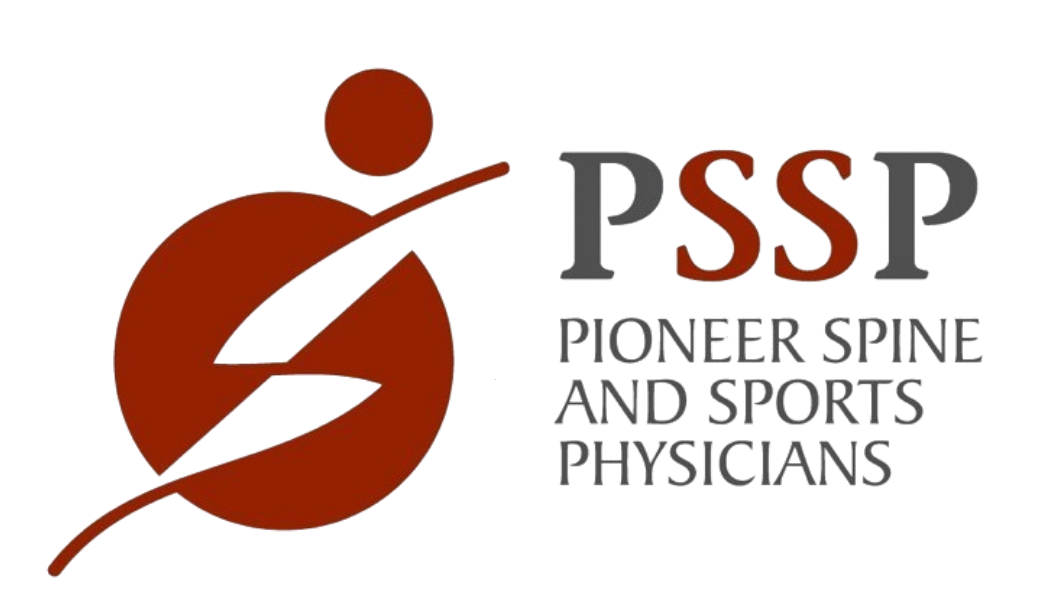
Services & Procedures
Comprehensive, Patient-Focused Treatments for Pain and Recovery
At Pioneer Spine & Sports Physicians, we provide advanced, evidence-based treatments designed to help you recover from injury, manage chronic pain, and regain function. Our team works closely with you to create personalized care plans tailored to your unique needs and goals.
We also offer in-house physical therapy, providing hands-on therapy, customized exercises, and functional training to restore mobility and reduce pain. For those wanting to maintain progress, personal training focused on strength, mobility, and endurance is available to support long-term health and wellness.
Services & Procedures
-
Treatment option for patients who suffer from frequent, debilitating migraines that interfere with daily life.
Who Is Eligible
15 or more headaches per month, each lasting 4+ hours
Prior evaluation by neurologist or primary care provider
Tried and not responded to other migraine medications
What to Expect
Injections in specific head and neck sites
Procedure takes about 10 minutes in-office
Fine needle feels like small pinches
Go home immediately afterward
Treatment Plan
Initial series: 2 treatments spaced 12 weeks apart
Some relief within 4 weeks, full effect by week 24
Ongoing treatments every 12 weeks for continued prevention
-
Treatment option for patients with sports injuries, joint pain, or soft tissue conditions seeking a non-drug treatment.
What It Is
Class IV laser therapy uses light energy to reduce pain, improve circulation, and accelerate healing in muscles, ligaments, and joints.How It Works
Laser light stimulates cellular activity through photobiomodulation, increasing metabolism, reducing inflammation, and supporting natural healing.When It’s Recommended
Chronic pain
Joint pain
Soft tissue injuries
Tendonitis and sprains
Post-surgical recovery
What to Expect
Sessions last 3–10 minutes. Most patients feel gentle warmth and may notice immediate pain relief. Treatments are safe, drug-free, and FDA-cleared.Treatment Plan
Typically 2–3 sessions per week, with most plans ranging from 6–12 visits for lasting improvement.Safety
Performed by trained professionals, laser therapy is safe. Protective eyewear is required, and side effects are rare and temporary. -
Treatment option for patients experiencing numbness, tingling, weakness, or unexplained muscle pain.
What It Is
EMG and NCS measure how well your nerves and muscles function. These tests help diagnose conditions like carpal tunnel, pinched nerves, or neuropathy.How It Works
NCS: Small electrical impulses measure nerve signal speed.
EMG: A fine needle electrode records muscle activity to detect issues.
Safety & Comfort
NCS causes only mild, brief sensations.
EMG may leave small bruises or soreness that usually resolve in days.
Infection is extremely rare.
Before & After Testing
No dietary or medication restrictions.
Avoid lotions or ointments on the day of testing.
Remove jewelry.
Temporary soreness is normal; ice may help if needed.
Why It Matters
These tests provide critical information to help your physician create an accurate diagnosis and effective treatment plan. -
Treatment option for patients with vertebrogenic low back pain that has not improved with other treatments.
How It Works
Targets the basivertebral nerve inside the spine using gentle heat to block pain signals.What to Expect
Outpatient procedure under an hour
Small incision
Most patients go home the same day
Quick recovery with lasting pain relief
HEADER- MILD Procedure
SUBHEADER - Treatment option for patients with lumbar spinal stenosis causing leg pain, back pain, or limited walking ability.How It Works
Removes excess tissue pressing on spinal nerves through a tiny incision without implants or stitches.What to Expect
Procedure under an hour
Same-day discharge
Fast recovery with improved walking and daily activity
-
Treatment option for patients with chronic nerve pain in areas such as the shoulder, knee, or back.
How It Works
A small wire delivers gentle electrical pulses to “reset” pain signals. A temporary system may be placed first, followed by a longer-term device if successful.When It’s Used
Pain in the shoulder, knee, foot, or post-injury/post-surgery areas.Benefits
Reduced pain
Improved mobility
Less reliance on medications
-
Treatment option for patients with joint, tendon, or muscle injuries seeking natural healing and pain relief.
What It Is
PRP uses a sample of your own blood, concentrating the platelets to help repair injured muscles, tendons, and joints. This treatment taps into your body’s natural healing process to reduce pain and support recovery.
How It Works
Blood is drawn and processed to concentrate platelets. The PRP solution is then injected into the injured area to stimulate tissue repair and regeneration.What to Expect
PRP injections, typically guided by ultrasound or fluoroscopy, are performed in-office, are quick, and cause minimal discomfort. Most patients can resume normal activities shortly after the procedure.
Safety
PRP uses your own blood, making it a low-risk procedure. Side effects are typically mild and temporary, such as minor soreness or bruising at the injection site.
Results
Patients may experience reduced pain, improved mobility, and faster healing in the treated area. Benefits often become more noticeable over several weeks as the body responds to the treatment.Coverage
It’s important to know that PRP is considered an elective, regenerative treatment and is not covered by insurance, so patients are responsible for the cost. -
Treatment option for patients with arthritis-related back or neck pain that has not responded to other treatments.
What It Is
A minimally invasive procedure that targets pain originating from facet joints, using controlled heat to disable the small nerves that carry pain signals, most commonly in the neck or lower back.How It Works
Diagnostic medial branch blocks confirm the pain source.
Tiny needles are guided using X-ray imaging.
Heat is applied for 60–90 seconds to block pain signals.
Results
Pain relief usually lasts 6–18 months. The procedure can be repeated safely if needed.What to Expect
Performed under local anesthesia, sometimes with mild sedation.
Temporary soreness or numbness may occur.
Normal activities resume the next day (except driving if sedated).
Safety
Minimal risks including short-term discomfort or temporary numbness. Serious complications are rare. -
A treatment option for patients with chronic nerve pain, neuropathic pain, or failed back surgery syndrome, including painful diabetic neuropathy.
How It Works
A trial device is placed to test effectiveness.
If successful, a permanent device is implanted.
Adjustable to manage pain throughout the day.
When It’s Used
Failed back surgery syndrome
Complex regional pain syndrome (CRPS)
Nerve-related pain in the back, legs, or arms
Painful diabetic neuropathy
Benefits
Significant pain reduction
Improved mobility and quality of life
Reduced dependence on opioid medications
Safety
Generally safe and well-tolerated. Benefits typically outweigh risks.
Physical Therapy
Personalized Care for Musculoskeletal Conditions
How It Works
Hands-on, manual therapy combined with targeted strengthening and stabilization exercises to reduce pain and restore function. Patients are guided in home exercise programs for continued recovery.
When It’s Used
Spinal disorders, pelvic dysfunction, muscular pain, disc-related conditions, and sports-specific injuries.
Benefits
Reduced pain
Improved strength and mobility
Faster, safer return to daily activities or sports
We Welcome Workers Comp Cases
We understand that work-related injuries can be stressful and disruptive. That is why we provide compassionate, individualized care to help you recover safely and get back on the job. From thorough evaluations to tailored treatment plans including physical therapy, pain management, and advanced procedures, we guide you every step of the way.
When activity restrictions are necessary, we collaborate closely with patients, employers, and case managers to define safe limitations while encouraging ongoing participation at work whenever possible. This approach helps minimize time away from work, supports proper healing, and reduces the risk of re-injury. By combining evidence-based care with a streamlined process, we make recovery more efficient for both patients and employers, promoting a faster return to function.


